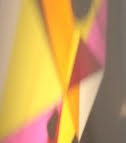ruscha on photo books and small fires in 1965...

What is your purpose in publishing these books?
To begin with – when I am planning a book, I have a blind faith in what I am doing. I am not inferring I don’t have doubts, or that I haven’t made mistakes. Nor am I really interested in books as such, but I am interested in unusual kinds of publications. The first book came out of a play with words. The title came before I even thought about the pictures. I like the word “gasoline” and I like the specific quality of “twenty-six.” If you look at the book you will see how well the typography works – I worked on all that before I took the photographs. Not that I had an important message about photographs or gasoline, or anything like that – I merely wanted a cohesive thing. Above all, the photographs I use are not “arty” in any sense of the word. I think photography is dead as a fine art; its only place is in the commercial world, for technical or information purposes. I don’t mean cinema photography, but still photography, that is, limited edition, individual, hand-processed photos. Mine are simply reproductions of photos. Thus, it is not a book to house a collection of art photographs – they are technical data like industrial photography. To me, they are nothing more than snapshots.
Is there a correlation between the way you paint and the book’s?
It’s not important as far as the books are concerned.
Was it necessary for you, personally, to take the photographs?
No, anyone could. In fact, one of them was taken by someone else. I went to a stock photograph place and looked for pictures of fires, there were none. It is not important who took the photos, it is a matter of convenience, purely.
What about the layout?
That is important, the pictures have to be in the correct sequence, one without a mood taking over.
Do you know a book called “Nonverbal Communication” by Ruesch and Kees?
Yes, it is a good book, but it has a text that explains the pictures. It has something to say on a rational level that my books evade. The material is not collated with the same intent at all. Of course, the photographs used are not art photographs, but it is for people who want to know about the psychology of pictures or images. This (“Various Small Fires”) IS the psychology of pictures. Although we both use the same kind of snapshots, they are put to different use. “Nonverbal Communication” has a functional purpose, it is a book to learn things from – you don’t necessarily learn anything from my books. The pictures in that book are only an aid to verbal content. That is why I have eliminated all text from my books – I want absolutely neutral material. My pictures are not that interesting, nor the subject matter. They are simply a collection of “facts”; my book is more like a collection of “readymades.”
You are interested in some notion of the readymade?
No, what I am after is a kind of polish. Once I have decided all the detail – photos, layout, etc. – what I really want is a professional polish, a clearcut machine finish. This book is printed by the best book printer west of New York. Look how well made and crisp it is. I am not trying to create a precious limited edition book, but a mass-produced product of high order. All my books are identical. They have none of the nuances of the handmade and crafted limited edition book. It is almost worth the money to have the thrill of seeing 400 exactly identical books stacked in front of you.
excerpts from a 1965 conversation between ed ruscha and john coplans from the february 1965 issue of artforum, regarding ruscha's second book, various small fires.Labels: artforum, ed ruscha, interviews, john coplans, photograph books, small fires

4 Comments:
have you ever been to israel?
sometimes that is not important and we ignore will become very important and meaningful.
I wonder if Ruscha still thinks that photography is dead, and if so, why not painting as well? They are, after all, also individual and hand-made.
hey matthew, indeed ruscha's comments are both wonderful and totally problematic and contradictory... i suppose in some ways setting the table for work with similar issues. many dicey statements here. check out the whole interview.
Post a Comment
<< Home